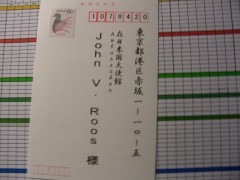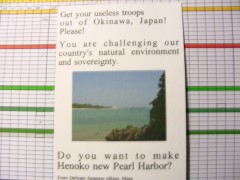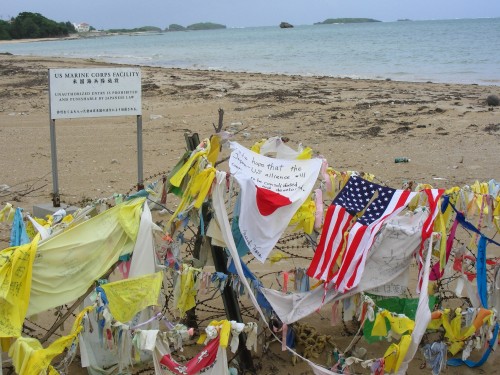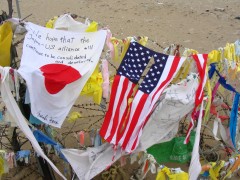17 August 2010
Why they protest US military base
Anti-US military base activist, Mr. Ashitomi spoke to young students from Palestinean, and Israel with interpreter.
He talked about why he set up the tent to monitor nearby US marine base, Camp Schwab.
Japanese government recently agreed with the US marine on expansion of the current marine base for the relocation of the Futenma base in Okinawa.
Part 1 is environmetal issue related to the construction of new base. Part 2 is peace issue.
Anti-US base activist talks 反米軍基地活動家の話し Part 1
Anti-US base activist talks 反米軍基地活動家の話し Part 2
You can learn more detail in this blog's tag, Okinawa, which you can access by clicking the below.
18:20 Posted in Ecology, Japan News, Politics, Society, US-Japan relationship, USA issues | Permalink | Comments (0) | Tags: military, okinawa
10 August 2010
Very Constitutional
Found and captured great scene in Henoko beach, where US marines are destroying the natural environment to harm local people.
This represents current situation of US-Japan relationship.
12:23 Posted in Japan News, Politics, US-Japan relationship, USA issues | Permalink | Comments (0) | Tags: military, okinawa
14 June 2010
Sent a postcard to US Ambassador to Japan


22:31 Posted in Ecology, Japan News, Politics, US-Japan relationship, USA issues | Permalink | Comments (0) | Tags: okinawa, military
29 May 2010
Why not just shrink rather than relocate?
Japanese loopy PM accepted humiliating agreement from the U.S.
He turned down the proposal of relocating US marine base, Futenma in Okinawa Prefecture to off the island.
However, if this is going to work out as stated in the agreement is uncertain. Okinawans are now very, very angry with the agreement.
So are a lot of Japanese voters. Maybe after July election, he will resign from prime ministerhood.
New government will then have to rethink the agreement.
But the good thing is because of this turmoil, more and more people have become aware that the U.S. military is not defending Japan at all.
It is not the issue of relocation, it is reducing or getting rid of the bases from Japan.
Even relocation site is changed to Guam or Hawaii, there is another problem.
Can't believe that the U.S. military has been messing islands in the Pacific. (Well, Japanese military did so partially.)
I just found very interesting show on the net. The voices from 3 islands in the Pacific.
Stupid, why not the U.S. government spend vast amount of money on poverty, education or environmental protection instead of messing people and environment of the islands or Iraq, or Afghanistan?
10:27 Posted in Ecology, Japan News, Politics, US-Japan relationship, USA issues | Permalink | Comments (1) | Tags: military, okinawa







